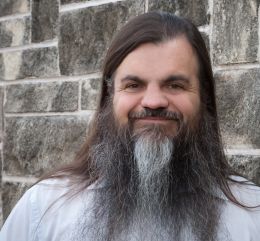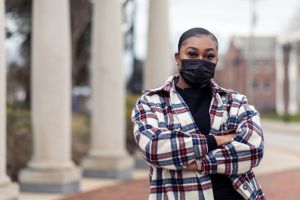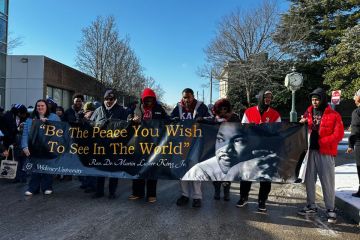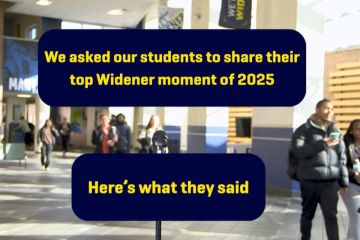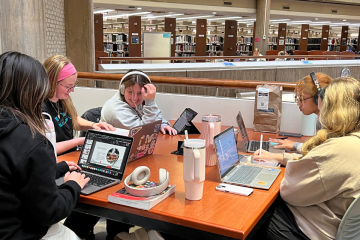Futurist Brings Students, Faculty and Staff Together to Rethink Higher Education

The Widener community considered the impact of current and future forces like the COVID-19 pandemic and climate change on higher education recently through the university’s highly anticipated annual Beideman Visiting Scholar lecture.
Students, faculty and staff joined in the virtual lecture by Bryan Alexander, an award-winning, internationally known futurist, researcher and writer who works in the field of higher education’s future. Alexander considered other major forces, like the racial justice movement and population shifts, too.
“It was great to hear from someone who is so educated and so inclusive and so open to hearing everyone’s opinions,” said Elisha Abney, a paralegal studies major who will graduate this year.
Alexander visited Widener as the university’s 2021 Beideman Visiting Scholar. His presentation to an audience of more than 200 demonstrated Widener’s dedication to programming that contributes to a vibrant campus life, sparks innovation and discussion across all disciplines, and advances the commitment to transform students into strategic thinkers and leaders. He also conducted leadership workshops with students, faculty and staff.
“My initial reaction was, he’s very intellectual and he’s very curious. It wasn’t the type of lecture where he talked at us,” senior chemistry and chemical engineering major Aidan Looby said. “He wanted to get the audience involved.”
Alexander spent more than 90 minutes exploring major forces that are driving change and opportunity in the future of higher education. He predicted COVID-19 would stoke student interest in allied health studies. “If you’re 18 and don’t know what to do with your life, or 40 and want to reinvent yourself, contributing to the defeat of a pandemic is appealing,” he said.
Climate change may be one of the biggest drivers of change in higher education, Alexander said. From physical campus setups – particularly for universities that are vulnerable to rising sea levels – to carbon-neutral buildings, classes, majors and research on climate change, and the expansion of trees and foliage on campuses to combat carbon in the atmosphere, it’s a key factor.
Looby hadn’t considered climate change in the context of academics.
“It made us think about what role do students have to play in that? That was cool,” he said.
Alexander also touched upon shifting population demographics, which are shrinking the pool of traditional-age undergraduates. He predicted many colleges would develop programs to appeal to senior learners, and pointed to an Arizona university that developed a residence hall for senior citizen students. He also explored the United States’ “great awakening” on what it means to be a person of color and how the racial justice demonstrations of 2020 are impacting university operations, from curriculum to hiring and promotion, admissions and more.
All of these things, and the greater role digital communication has assumed in the pandemic, will drive improvements in the quality of education, he said.
We can also take the opportunity to collaborate better and more deeply across higher education. It is vital we learn from each other. Above all, we can do this with a sense of justice, equity and fairness. These are all powerful ways for us to advance. — Bryan Alexander
Widener University is grateful to Alumnus Paul Beideman, chair of Widener’s Board of Trustees, and his wife Caroline, for their generosity in making Alexander’s visit possible. Beideman, who recently announced his retirement as president of Avenue of the Arts in Philadelphia, earned a Master of Business Administration from Widener in 1979. The annual lecture stimulates discussions on important contemporary topics, including leadership and innovation, and richly contributes to Widener students’ educational experience.
“I think it’s great that Widener gives its students an opportunity to connect beyond just our classes,” Abney said.

